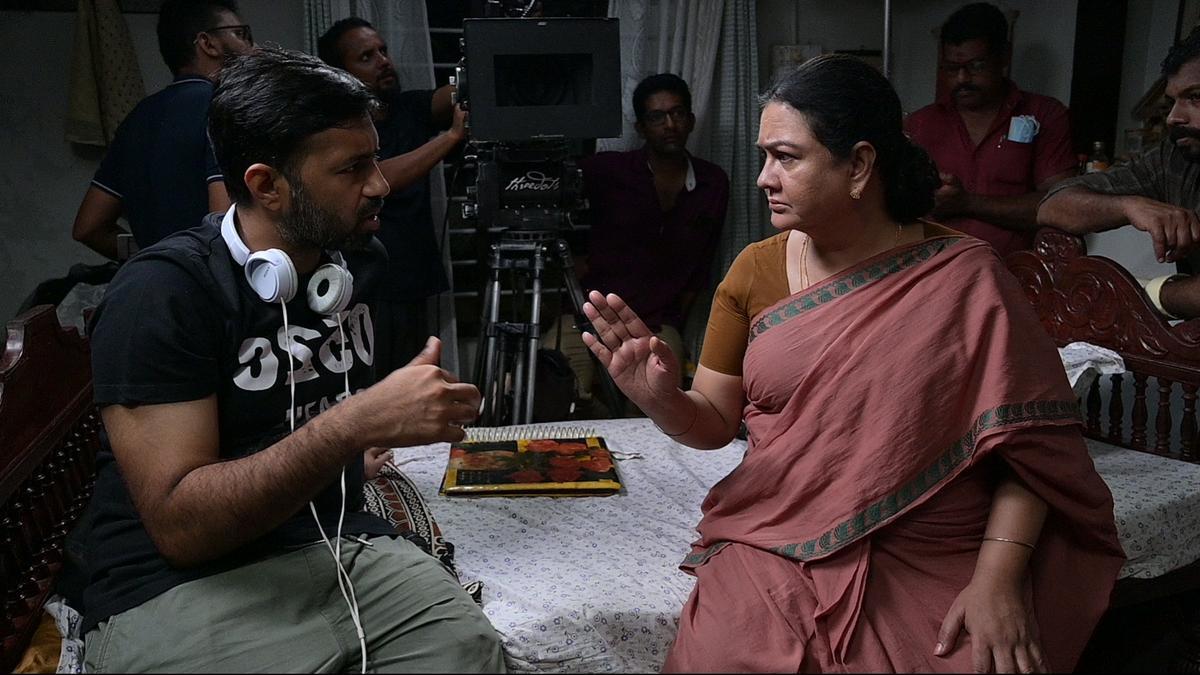
Urvashi is the epitome of calm as congratulatory messages flood in, celebrating her sixth Kerala State Film Award for Best Actor (female). She humbly mentions that her phone has been nearly drained of battery due to the endless stream of calls since the award announcement on Friday.
“I don’t think I have achieved anything extraordinary to earn this award. Viewers insisted that Urvashi chechi deserved an award and predicted my win. Perhaps that’s the reason I received it,” says the seasoned actor.
Urvashi captivated the jury with her portrayal of Leelamma, a mother wrestling with harsh realities after her son’s death in Christo Tomy’s ‘Ullozhukku’. Reflecting on the character, she shares, “It was an excellent script and a marvelous role. I waited for about three to four years for the film to start, as did Christo. The role, script, and director all appealed to me. However, the notion of doing such a grim film for over 40 days was daunting.”
She elaborates, “Being in a sorrowful state throughout the shoot and constantly weeping was a challenge. The thought of sustaining such emotions was nerve-wracking. But then, I felt that this character was meant for me. With that notion, I decided to take on Leelamma. However, I challenged myself not to shed any tears during the portrayal despite the character’s tragic nature.”
Even holding back her tears during the shoot took an emotional, physical, and mental toll on her. “I realized how difficult it is to continuously weep and grieve without actually shedding tears. If Leelamma were to cry, it would have relieved some of the trauma. By the end of each day, my cheeks ached. This role was truly a test of endurance,” she admits.
After the 45-day filming schedule, she felt an unprecedented sense of fatigue. It took her time to regain her composure. Fortunately, immediately afterward, she had to report to the sets of ‘Jaladhara Pump Set Since 1962,’ where she played a contrasting character. This transition helped her recover.
Looking back on her illustrious career, Urvashi recalls her entry into Malayalam cinema after starring in K Bhagyaraj’s ‘Mundhanai Mudichu’ (1983). She then appeared as a heroine in films like ‘Ethirpukkal’ (1984) and ‘Ente Ammu Ninte Thulasi Avarude Chakki’ (1985), dominating the industry with diverse roles in family dramas, action thrillers, crime thrillers, and romantic comedies.
. After a hiatus, she made a comeback with Sathyan Anthikkad’s ‘Achuvinte Amma’ (2005), winning the National Award for Best Supporting Actor.
Since then, Urvashi has evolved into a screenwriter and producer while remaining one of the most sought-after actors in both Tamil and Malayalam cinema. She credits her directors and writers for allowing her to showcase her talent. “Actors don’t choose their characters; it is the directors’ belief that keeps us going. Their confidence in me gives me the self-assurance to embody a character. I’ve never sought a specific role; I’ve gone with the flow,” she states.
Urvashi does not dwell on the number of awards she has received or the array of characters she has brought to life. “I live in the present and don’t plan to ponder on these achievements moving forward,” she asserts.
She never prepares for a role in the traditional sense. “I don’t understand rehearsals or auditions. I simply go to the location and follow the director’s instructions. Whatever I do when the director calls ‘action,’ that’s my acting. That’s all I know,” she explains.
Reiterating her spontaneous acting style, Urvashi mentions that she finds it difficult to replicate her actions in a retake. She avoided being typecast, even during the height of her career, boldly taking on negative roles infused with her unique brand of humor.
In films like ‘Ponmuttayidunna Tharavu’ and ‘Thalayanamantram,’ she delivered memorable performances as self-centered, flawed characters, doing so without conforming to the typical “vamp” portrayal of the time. She humorously recalls her trademark fluttering of eyelashes, a gesture borrowed from the black-and-white era of films.
Despite having depicted women from varied walks of life, Urvashi insists that she never modeled her characters on real people. The fast-paced nature of the filming schedules left no room for such preparations. “With shooting schedules lasting 12 to 15 days, we had to quickly transition between sets and roles. My directors were my teachers, providing clarity and offering me the freedom to improvise,” she says.
In closing, Urvashi emphasizes that she does not overanalyze her roles. If a character appeals to her, she commits to the project. “Once on location, I focus on the director’s vision and follow their lead, regardless of their age or status,” she concludes.
The celebrated actor expresses her desire to continue exploring a wide variety of roles, attributing her ability to do so to her directors and writers. While she has already accomplished much, Urvashi shows no signs of resting on her laurels, continually looking forward to the next challenge in her impressive career.












